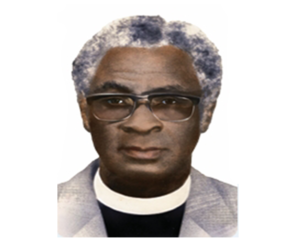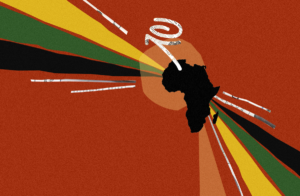Samuel Kwame Aboa, a celebrated educationist and a distinguished Presbyterian Church of Ghana (PCG) minister, contributed significantly to the establishment of the Akrofi-Christaller Institute. Rev Aboa first came to the attention of Rev Dr Kwame Bediako in 1980, during his PhD studies in Aberdeen. Aboa was then the PCG Inter-Church and Ecumenical Relations Secretary and was in Europe, visiting all the PhD students sponsored by the PCG. It was then that Kwame Bediako shared, for the first time, the memorandum on the establishment of a research and training centre that had been developed during the past six to seven years since the 1974 Lausanne Congress on World Evangelization. Unknown to Kwame Bediako, Rev Aboa had been working to develop a culture and language library within the PCG based on the early work of the Basel Mission in language work and documentation, and while that had not as yet moved forward, he had in the meantime been building up a collection of 19th century Basel Mission literature that was to be the nucleus of the library.
Thus, the two visions met and were seen by both to coalesce. Rev Aboa enthusiastically undertook to share the memorandum with the Synod Committee, so becoming ACMC’s first advocate with the PCG, with the outcome that the church leadership at the time agreed to the establishment of this new venture. He was also, therefore, the first contributor to the library that was to be established to undergird ACMC’s programmes, providing a unique and priceless collection of rare 19th century materials, as well as the connections in Germany and Basel that enabled Rev Dr Bediako to build upon for further books and also photographs.
 It was Rev Aboa who first brought Kwame Bediako to Akropong to show him the historic Basel Mission buildings – Basel House, Coconut House (now ACI Guest House), where Johannes Christaller had lived in the 19th century and Clement Anderson Akrofi had lived in the 20th century. It was through his good offices that the PCG became willing to hand over Coconut House to the new centre, with Basel House later added when the training college (PTC) vacated the premises.
It was Rev Aboa who first brought Kwame Bediako to Akropong to show him the historic Basel Mission buildings – Basel House, Coconut House (now ACI Guest House), where Johannes Christaller had lived in the 19th century and Clement Anderson Akrofi had lived in the 20th century. It was through his good offices that the PCG became willing to hand over Coconut House to the new centre, with Basel House later added when the training college (PTC) vacated the premises.
It was Rev Aboa who also introduced Kwame Bediako to the whole history of the church in Akuapem and to the important heritage of an indigenous church which provided such formidable foundations for the work of the new centre as envisaged by Kwame Bediako, as well as giving historical depth to the rationale for its founding. Rev Aboa continued to devote time and energy to ACMC, serving faithfully on the Board of Trustees. He eventually became chairman, succeeding the first chairman, Dr E Evans-Anfom, for several years before his own retirement. Even so, he maintained an active interest in the centre’s projects, contributing materials from time to time and translating publicity literature into Twi on request. He was the final arbiter of any language issue that would crop up from time to time. He was, therefore, in every respect a founder of ACMC/ACI and a catalyst and encourager of its vision, opening the way for the new venture to have solid, contextual roots in an august Akuapem/Gold Coast/Ghana heritage.
Reference
Akrofi-Christaller of Theology, Mission and Culture (2025), The contribution of Samuel K. Aboa to the Institute. Unpublished.




